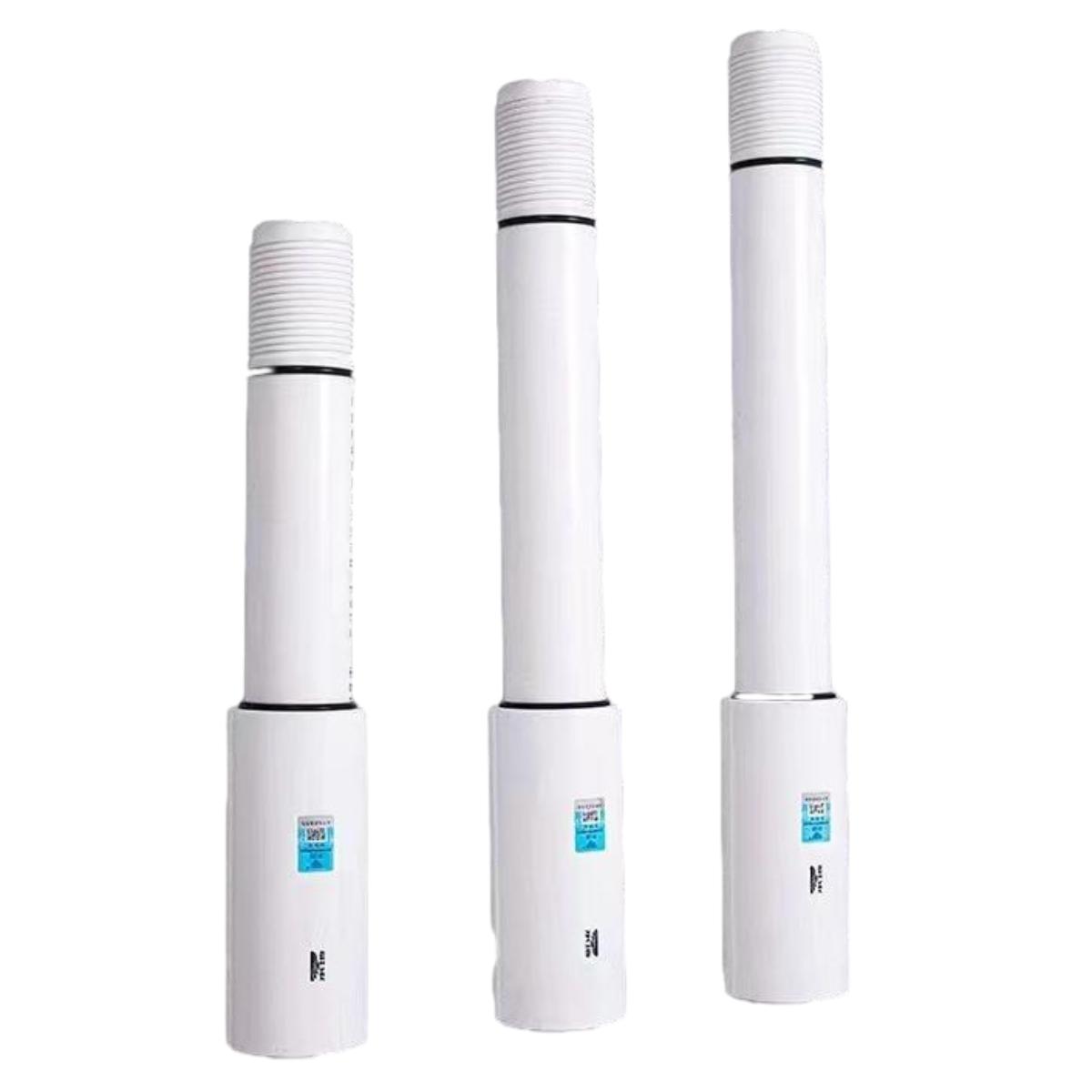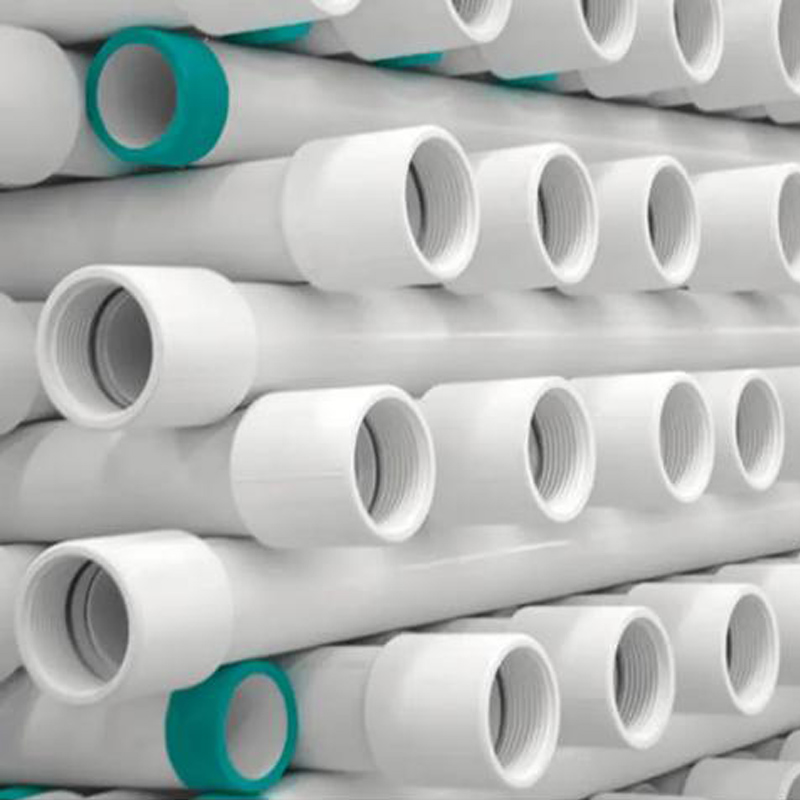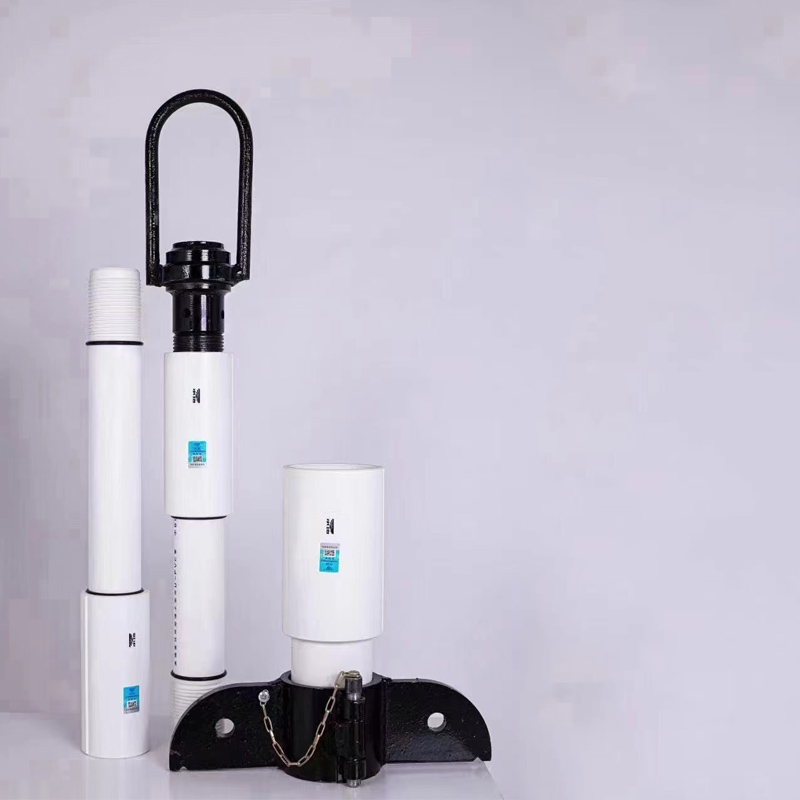Aug . 27, 2025 03:20 Back to list
UPVC Column Pipes for Submersible Pumps: Durable & Corrosion-Free
Revolutionizing Borehole Water Extraction: The Power of UPVC Ccolumn pipes for submersible pumps
The demand for efficient, reliable, and sustainable water extraction solutions has never been higher, particularly in sectors reliant on groundwater. Traditional materials for column pipes, such as galvanized iron (GI) or mild steel, have long presented challenges related to corrosion, heavy weight, and complex installation. This landscape is rapidly evolving with the advent of advanced polymer solutions. Specifically, UPVC Ccolumn pipes for submersible pumps have emerged as a transformative technology, offering superior performance, extended service life, and significant cost-effectiveness for a wide array of industrial and agricultural applications. The current industry trend strongly favors lightweight, non-corrosive, and energy-efficient pumping solutions, a niche perfectly addressed by these innovative piping systems.
This article delves into the intricate details of UPVC C-column pipes, exploring their manufacturing prowess, technical specifications, diverse application scenarios, and compelling advantages. We will also address key considerations for B2B decision-makers, including customization, vendor evaluation, and real-world implementation case studies, providing a holistic view for engineers and procurement specialists.
Manufacturing Excellence: The Process Flow of UPVC C-Column Pipes
The production of high-performance UPVC Ccolumn pipes for submersible pumps is a sophisticated process, meticulously controlled to ensure adherence to stringent international standards such as ISO 4991, DIN 8062, and ASTM D1785. The foundation of these pipes lies in unplasticized polyvinyl chloride (UPVC), a robust thermoplastic polymer known for its chemical stability and mechanical strength.
Schematic Manufacturing Steps:
- Raw Material Preparation: High-grade UPVC resin, stabilizers, lubricants, and pigments are precisely weighed and blended in a high-speed mixer. This ensures a homogenous mixture critical for consistent pipe properties.
- Extrusion Process: The blended UPVC compound is fed into a twin-screw extruder. Under controlled heat and pressure, the material melts and is forced through a die, forming a continuous pipe profile. This casting-like process is optimized for smooth internal and external surfaces.
- Sizing and Cooling: The hot pipe then passes through a vacuum sizing tank, where its precise dimensions (outer diameter and wall thickness) are maintained. Water spray cooling progressively solidifies the pipe, locking in its structural integrity.
- Cutting and Bending (if applicable): Once cooled, the pipes are cut to specified lengths. While typically straight, specialized applications may involve controlled bending at this stage.
- Threading/Joint Forming (CNC Machining): A critical step for column pipes is the formation of robust joints. This involves precision CNC machining to create square threads at both ends of the pipe. These threads are designed for high-tensile strength and leak-proof connections, ensuring quick and secure installation without specialized tools or solvent cement.
- Quality Control and Testing: Each batch undergoes rigorous testing. This includes hydrostatic pressure testing, tensile strength assessment, impact resistance, and dimensional accuracy checks (e.g., as per ISO 9001 and CE marking requirements). Samples are also tested for chemical resistance and UV stability.
- Marking and Packaging: Finally, pipes are clearly marked with size, pressure rating, manufacturer details, and date of manufacture. They are then securely packaged for transportation.
This meticulous process ensures a product with an exceptional service life, often exceeding 50 years under normal operating conditions. Key advantages stemming from this manufacturing approach include inherent corrosion resistance, significantly lower energy consumption for submersible pumps due to smoother internal surfaces (reducing friction losses), and robust structural integrity for deep bore applications. Target industries range from agricultural irrigation and municipal water supply & drainage to industrial water management in petrochemical, mining, and metallurgy sectors.
Technical Specifications and Performance Metrics
The superior performance of UPVC Ccolumn pipes for submersible pumps is quantifiable through various technical parameters, which are critical for engineers designing water extraction systems. These pipes are designed to withstand high operational pressures and dynamic stresses inherent in submersible pump applications.
Key Product Specifications Table:
| Parameter | Value/Range | Standard/Characteristic |
|---|---|---|
| Material | Unplasticized Polyvinyl Chloride (UPVC) | High-grade resin, lead-free |
| Nominal Diameter (DN) | 50 mm (2") to 250 mm (10") | As per ISO 4991 series |
| Pressure Rating (PN) | 6 kg/cm² (PN6) to 25 kg/cm² (PN25) | Suitable for varying depths and pump heads |
| Tensile Strength | >45 MPa | High resistance to pulling stress during installation/operation |
| Impact Strength | >2 J (Izod notched) | Robustness against external impacts |
| Density | 1.35 – 1.45 g/cm³ | Significantly lighter than metallic pipes |
| Modulus of Elasticity | 2800 – 3200 MPa | Good stiffness and resistance to deformation |
| Operating Temperature | 0°C to 60°C | Suitable for most groundwater conditions |
| Coefficient of Thermal Expansion | ~6 x 10-5 mm/mm/°C | Managed through proper installation practices |
| Joint Type | Square Threaded (Male-Female) | Quick, leak-proof, high tensile strength |
| Corrosion Resistance | Excellent | Unaffected by acidic/alkaline water, electrolysis |
| UV Resistance | Good (stabilized for outdoor exposure) | Long-term durability in varied environments |

These parameters underscore the engineered superiority of UPVC C-column pipes. The high tensile strength of the square threads, for instance, is crucial for handling the immense weight of the pump and the entire column of water in deep boreholes, preventing separation or collapse. The smooth inner surface contributes to minimal frictional losses, directly translating into reduced energy consumption for the submersible pump, a significant operational advantage.
Diverse Application Scenarios
The versatility and robust performance of UPVC Ccolumn pipes for submersible pumps make them ideal for a broad spectrum of demanding applications where reliable water supply is paramount.
- Agricultural and Irrigation: From small farms to large-scale agricultural projects, these pipes are crucial for drawing water from borewells to irrigate crops, livestock watering, and aquaculture. Their corrosion resistance is particularly beneficial in areas with aggressive soil or water chemistries.
- Municipal Water Supply: Used in public borewells for urban and rural water distribution schemes. The hygienic properties of UPVC ensure that water remains uncontaminated, meeting potable water standards.
- Industrial Water Management: Essential for process water supply in manufacturing plants, cooling towers, and boiler feed systems. Industries like textiles, paper, food processing, and pharmaceuticals benefit from their chemical inertness.
- Mining and Construction Dewatering: In environments where corrosive water and heavy-duty operation are common, UPVC C-column pipes offer a durable and maintenance-free solution for dewatering pits and excavations.
- Residential and Commercial Borewells: For individual homes, housing societies, and commercial complexes relying on groundwater, these pipes provide a long-lasting and efficient pumping solution.
Technical Advantages and Economic Benefits
Choosing UPVC Ccolumn pipes for submersible pumps offers a myriad of technical and economic advantages over traditional materials, making them a preferred choice for forward-thinking organizations.
- Superior Corrosion Resistance: Unlike metal pipes that rust and corrode, UPVC is immune to electrochemical reactions, acidic or alkaline water, and saline conditions. This eliminates scaling, pitting, and reduces pump maintenance, ensuring clean water delivery.
- Significant Energy Savings: The extremely smooth internal surface of UPVC pipes results in minimal friction loss (Hazen-Williams C factor ~150). This translates directly into lower head loss and, consequently, reduced power consumption for the submersible pump, leading to substantial operational cost savings over the pipe's lifetime.
- Lightweight and Easy Installation: UPVC pipes are significantly lighter than their metallic counterparts (approximately 1/8th the weight of steel pipes). This reduces transportation costs, simplifies handling, and allows for quicker, safer installation without the need for heavy lifting equipment or specialized labor. The square thread joints further enhance ease of assembly.
- High Tensile Strength and Durability: Engineered with specially designed threads and robust wall thickness, these pipes can withstand the weight of heavy submersible pumps and the associated column of water, offering reliable long-term performance even in deep boreholes.
- Zero Maintenance: Once installed, UPVC pipes require virtually no maintenance. There is no need for painting, rust treatment, or descaling, contributing to lower total cost of ownership.
- Hygienic and Non-Toxic: UPVC is a non-toxic material, making it safe for potable water applications. It does not leach chemicals into the water, ensuring the water quality remains unaffected.

Comparison with Traditional Column Pipes:
| Feature | UPVC C-Column Pipes | Galvanized Iron (GI) Pipes | HDPE Pipes |
|---|---|---|---|
| Corrosion Resistance | Excellent (immune to rust/scale) | Poor (prone to rusting, scaling) | Good (but susceptible to biofouling) |
| Weight | Very Light | Very Heavy | Light |
| Installation Ease | Very Easy (threaded joints) | Moderate (heavy, wrench required) | Complex (fusion welding, special tools) |
| Flow Characteristics | Excellent (smooth bore, low friction) | Poor (rough, scaling reduces flow) | Good (but prone to sag in borewell) |
| Energy Efficiency | High (reduced pump load) | Low (increased pump load due to friction/scale) | Moderate (flexibility can impact efficiency) |
| Service Life | >50 years | 10-15 years (prone to failure) | >50 years (but less rigid) |
| Cost-Effectiveness (LCC) | High (low OPEX, long life) | Low (high OPEX, frequent replacement) | Moderate (higher CAPEX, but good life) |
Customized Solutions and Vendor Evaluation
While standard UPVC Ccolumn pipes for submersible pumps meet most requirements, specialized projects often necessitate customized solutions. Reputable manufacturers offer engineering support to tailor pipe dimensions, pressure ratings, and even material formulations (e.g., enhanced UV stabilizers for exposed installations) to specific project demands. This might include custom lengths to minimize joints, specific thread designs for compatibility, or different stiffness classes for varying borehole depths and geological conditions.
When evaluating vendors for UPVC C-column pipes, B2B decision-makers should consider the following critical factors to ensure optimal product quality and long-term project success:
- Certifications and Standards: Verify compliance with international standards such as ISO 9001 (Quality Management), ISO 14001 (Environmental Management), and relevant product standards (e.g., ISI, ASTM, DIN). Look for third-party certifications.
- Manufacturing Capabilities: Assess the manufacturer's technological sophistication, including the use of CNC precision machining for threads and advanced extrusion lines.
- Quality Control Protocols: Inquire about their in-house testing facilities, hydrostatic pressure testing, impact resistance testing, and raw material quality checks.
- Experience and Reputation: Choose vendors with a proven track record, extensive years of service in the industry, and positive client testimonials. Look for established partner clients and successful project portfolios.
- After-Sales Support and Warranty: Evaluate the availability of technical support, installation guidance, and comprehensive warranty commitments.
Application Case Studies and Customer Experience
Real-world applications vividly demonstrate the tangible benefits of UPVC Ccolumn pipes for submersible pumps. Our experience and customer feedback consistently highlight improved operational efficiency and reduced lifecycle costs.
Case Study 1: Large-Scale Agricultural Irrigation Project (2021)
A major agricultural cooperative in a semi-arid region faced frequent failures and high energy costs with their existing GI column pipes due to aggressive groundwater. They switched to UPVC C-column pipes (DN150, PN10) for 30 borewells, ranging from 100 to 200 meters deep.
- Outcome: Energy consumption reduced by an average of 18% per borewell, leading to significant savings in electricity bills. Zero instances of pipe corrosion or failure reported over three years. Installation time was halved compared to GI pipes.
- Customer Feedback: "The transition to UPVC pipes was seamless. We've seen a dramatic decrease in our operational expenses and no more costly downtime due to pipe corrosion. It's a game-changer for our irrigation infrastructure."
Case Study 2: Industrial Water Supply for a Textile Mill (2022)
A textile manufacturing plant needed a reliable and chemically resistant solution for their borewell-fed process water. They installed UPVC C-column pipes (DN200, PN16) for a 250-meter deep borewell, replacing their existing steel pipes which suffered from internal scaling and contamination.
- Outcome: Consistent water flow and pressure without scaling issues. Water quality for textile processing improved, reducing the need for extensive pre-treatment chemicals. Reduced pump load extended pump motor life.
- Customer Feedback: "The purity of water delivered by the UPVC pipes is crucial for our dyeing processes. We've experienced fewer quality issues with our fabrics and overall greater system reliability."

Trust and Reliability: FAQ, Lead Times, Warranty, and Support
Frequently Asked Questions (FAQ)
Q: Are UPVC C-column pipes suitable for deep borewells?
A: Yes, with pressure ratings up to PN25, our pipes are engineered for deep borewell applications, ensuring robust connections and reliable water column support. The high tensile strength of the threaded joints is specifically designed for such demanding environments.
Q: How do UPVC pipes save energy compared to metal pipes?
A: The extremely smooth internal surface of UPVC pipes significantly reduces friction loss, meaning the submersible pump requires less energy to push water upwards. This translates to lower electricity bills and reduced wear on the pump motor.
Q: Is the installation process complicated?
A: No, the square threaded joints allow for quick and easy hand-tight installation without the need for welding, solvent cement, or specialized tools. This reduces installation time and labor costs.
Q: What is the typical service life of these pipes?
A: Under normal operating conditions, UPVC Ccolumn pipes for submersible pumps have an estimated service life exceeding 50 years, owing to their corrosion resistance and robust material properties.
Lead Time and Fulfillment
We maintain a robust supply chain and efficient manufacturing processes to ensure timely delivery. Standard orders typically have a lead time of 2-4 weeks, depending on quantity and specific requirements. For large-scale projects or customized solutions, a detailed production and delivery schedule will be provided upon order confirmation. We work closely with our logistics partners to ensure secure and prompt global delivery.
Warranty Commitments
We stand behind the quality and performance of our products with a comprehensive 5-year limited warranty against manufacturing defects and material failures under normal use and recommended installation procedures. Full warranty terms and conditions are available upon request, underscoring our commitment to product excellence and customer satisfaction.
Customer Support
Our dedicated technical support team is available to assist with product selection, installation guidance, and troubleshooting. We offer 24/7 online and phone support to ensure that our clients receive prompt and effective assistance whenever needed. Our goal is to forge long-term partnerships built on trust, reliability, and unparalleled product support.
Conclusion
UPVC Ccolumn pipes for submersible pumps represent a pinnacle in modern fluid conveyance technology, offering an unparalleled combination of durability, efficiency, and cost-effectiveness. Their technical superiority, demonstrated through rigorous testing and real-world applications, positions them as the ideal choice for any enterprise seeking reliable and sustainable water extraction solutions. By leveraging advanced manufacturing processes and adhering to international quality standards, these pipes not only solve the persistent challenges associated with traditional materials but also contribute significantly to reducing operational costs and environmental impact. Investing in UPVC C-column pipes is an investment in long-term efficiency, reliability, and peace of mind.
References
- International Organization for Standardization (ISO). ISO 4991: Thermoplastics pipes for the conveyance of fluids — UPVC pipes for submersible pumps.
- ASTM International. ASTM D1785: Standard Specification for Poly(Vinyl Chloride) (PVC) Plastic Pipe, Schedules 40, 80, and 120.
- The Plastics Pipe Institute (PPI). Handbook of Polyethylene Pipe. 2nd ed. 2008.
- Journal of Water Resources Planning and Management. "Energy Efficiency in Submersible Pumping Systems: A Comparative Analysis." Vol. 145, Issue 3, 2019.
-
Premium DN50 HDPE Pipes in Coils: Flexible, Long-lasting Supply
NewsAug.26,2025
-
HORON 25mm PPR Plumbing Pipes: Durable, Leak-Proof Water Solutions
NewsAug.25,2025
-
Hot/Cold DN25 PPR Water Pipes for Kitchen | Durable & Food-Safe
NewsAug.24,2025
-
DN100 PVC Pipes for Well Casings - Durable & Corrosion-Resistant
NewsAug.22,2025
-
HORON 25mm PPR Plumbing Pipes: Durable, Reliable & Leak-Proof
NewsAug.21,2025

